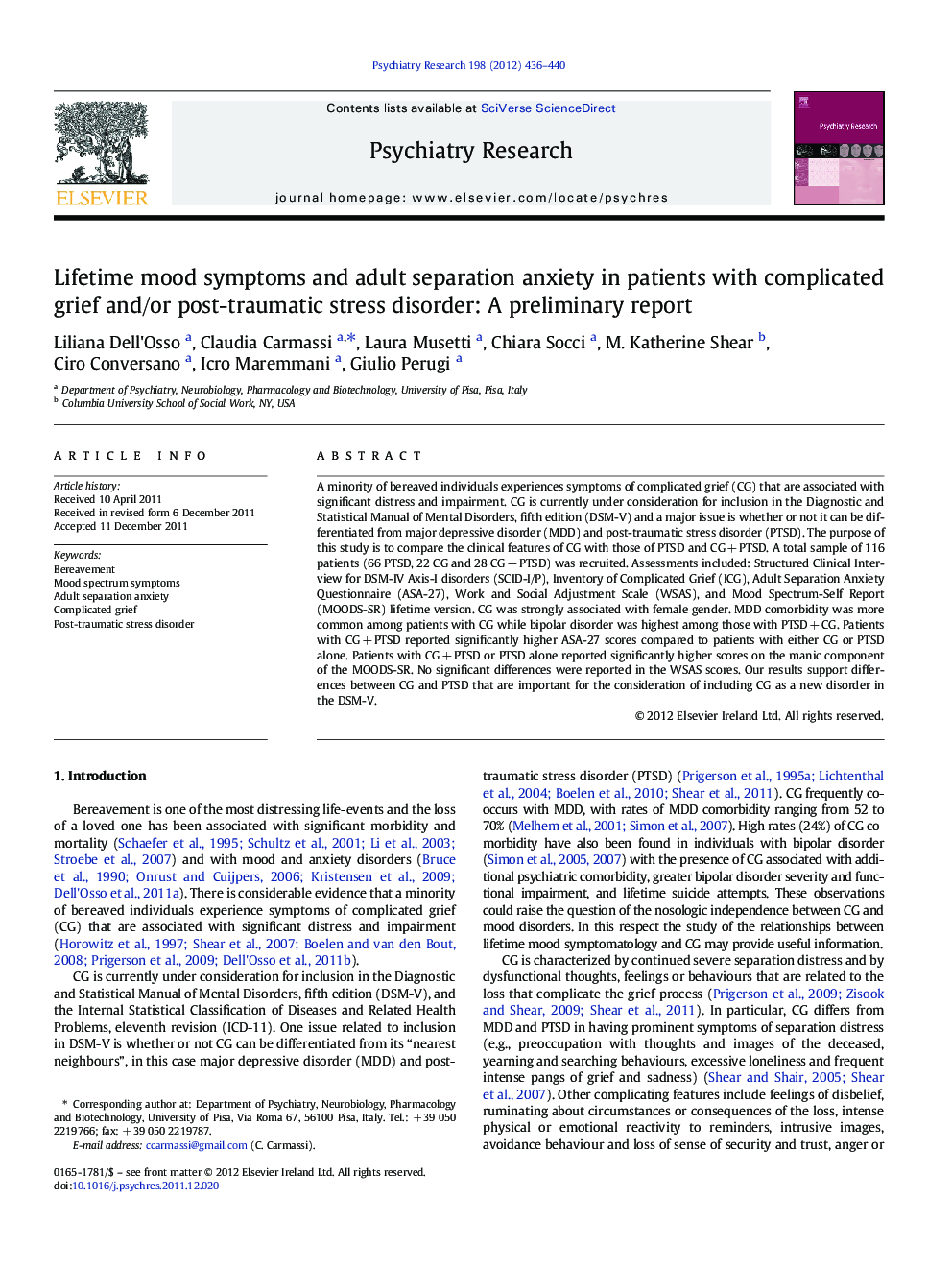| Article ID | Journal | Published Year | Pages | File Type |
|---|---|---|---|---|
| 10303958 | Psychiatry Research | 2012 | 5 Pages |
Abstract
A minority of bereaved individuals experiences symptoms of complicated grief (CG) that are associated with significant distress and impairment. CG is currently under consideration for inclusion in the Diagnostic and Statistical Manual of Mental Disorders, fifth edition (DSM-V) and a major issue is whether or not it can be differentiated from major depressive disorder (MDD) and post-traumatic stress disorder (PTSD). The purpose of this study is to compare the clinical features of CG with those of PTSD and CGÂ +Â PTSD. A total sample of 116 patients (66 PTSD, 22 CG and 28 CGÂ +Â PTSD) was recruited. Assessments included: Structured Clinical Interview for DSM-IV Axis-I disorders (SCID-I/P), Inventory of Complicated Grief (ICG), Adult Separation Anxiety Questionnaire (ASA-27), Work and Social Adjustment Scale (WSAS), and Mood Spectrum-Self Report (MOODS-SR) lifetime version. CG was strongly associated with female gender. MDD comorbidity was more common among patients with CG while bipolar disorder was highest among those with PTSDÂ +Â CG. Patients with CGÂ +Â PTSD reported significantly higher ASA-27 scores compared to patients with either CG or PTSD alone. Patients with CGÂ +Â PTSD or PTSD alone reported significantly higher scores on the manic component of the MOODS-SR. No significant differences were reported in the WSAS scores. Our results support differences between CG and PTSD that are important for the consideration of including CG as a new disorder in the DSM-V.
Related Topics
Life Sciences
Neuroscience
Biological Psychiatry
Authors
Liliana Dell'Osso, Claudia Carmassi, Laura Musetti, Chiara Socci, M. Katherine Shear, Ciro Conversano, Icro Maremmani, Giulio Perugi,
